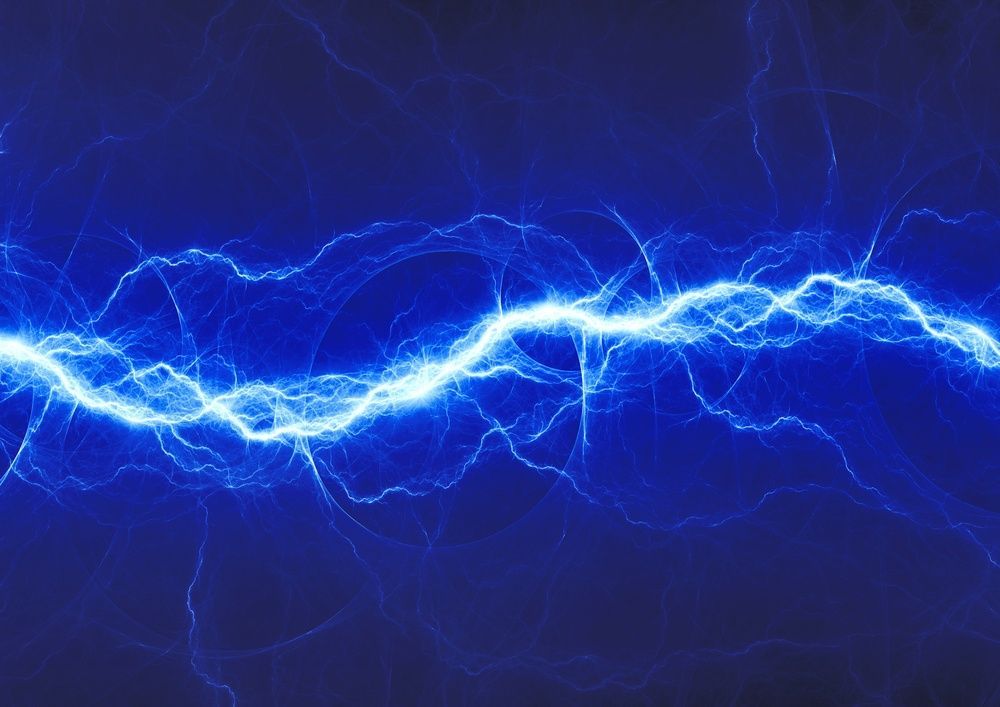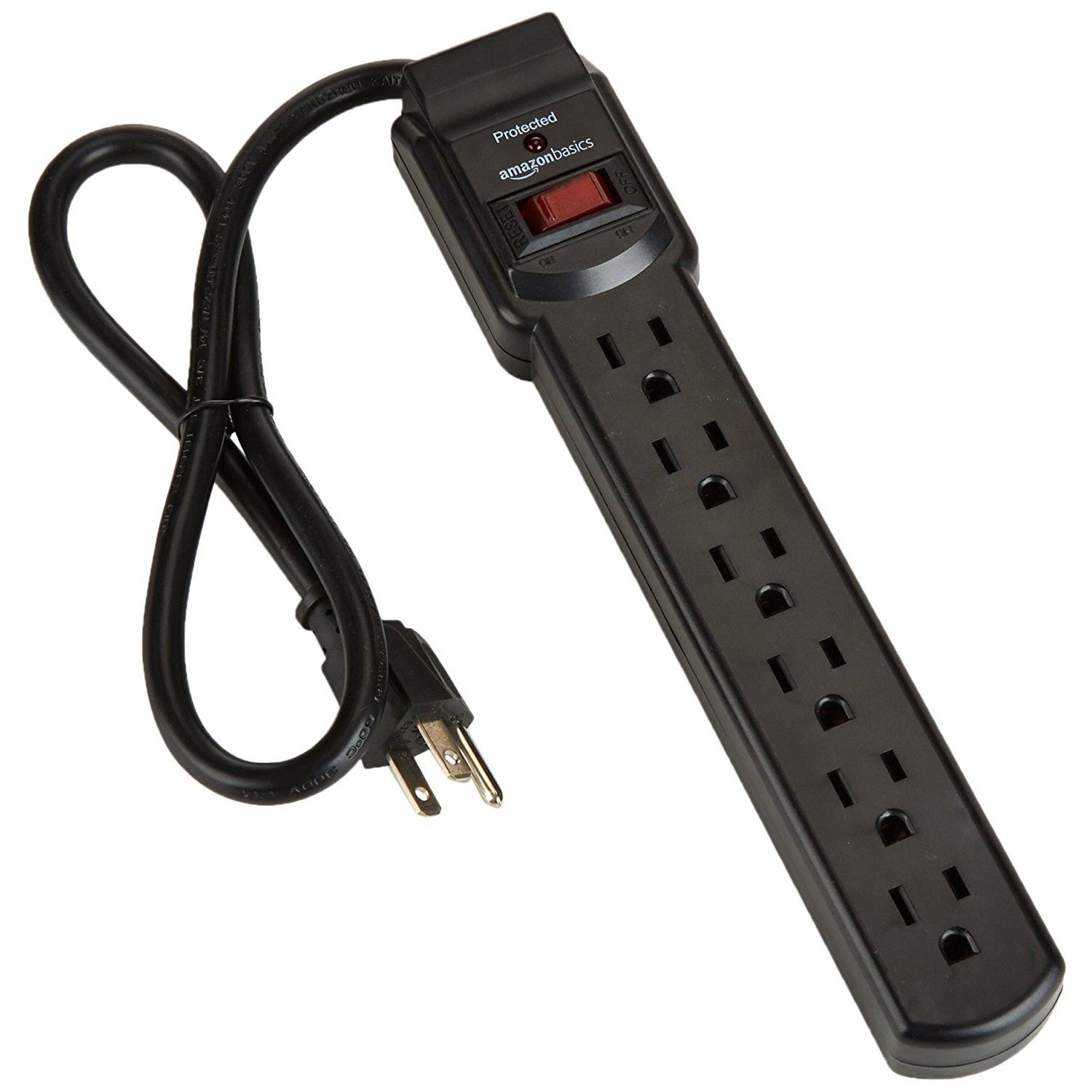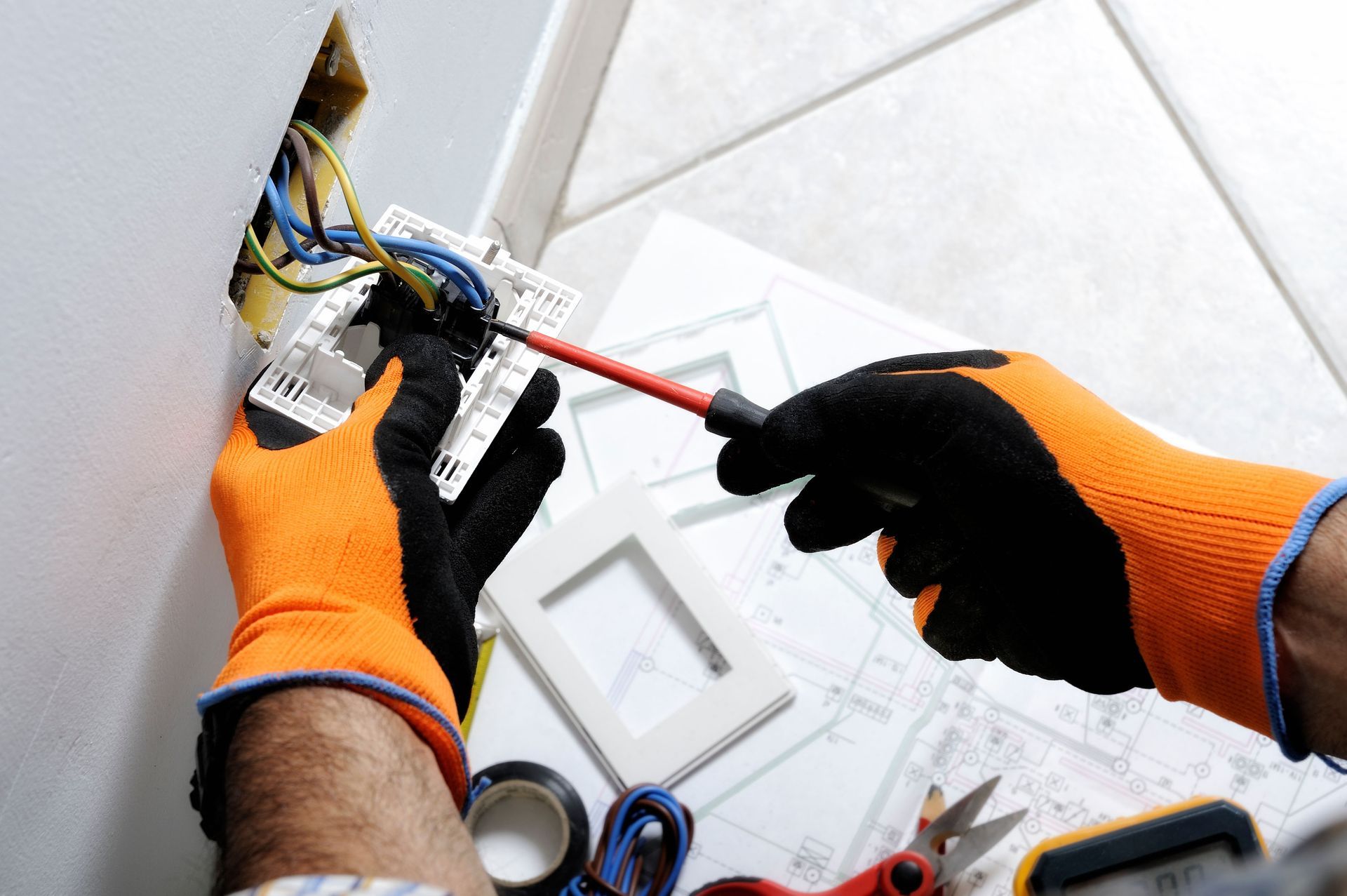What is a Power Surge?
March 17, 2025
How Can You Prevent Power Surges in your home?

What Exactly Is a Power Surge? How Can You Prevent Power Surges in Your Home?
When it comes to protecting your home and electronics, one of the most important yet often overlooked concerns is the threat of a power surge. A power surge is a sudden spike in voltage that can wreak havoc on your electrical appliances and devices, leading to costly repairs or replacements. But what exactly is a power surge, why is it dangerous, and how can you protect your home from these electrical disruptions?
Let’s dive into the details of power surges, their causes, and the best ways to keep your home safe.
What Exactly Is a Power Surge?
A power surge, also called a voltage surge, is a brief increase in the electrical voltage supplied to your home. It typically lasts for a fraction of a second but can reach voltages much higher than normal operating levels. While standard household voltage in the U.S. is around 120 volts, power surges can send voltage spikes that may be several times that amount.
These surges can occur for many reasons, both within your home and from outside sources, and can lead to significant damage to electrical devices that are plugged in at the time. Some surges are very small and have little to no noticeable effect, while others can be large enough to cause immediate and permanent damage.
How Can You Prevent Power Surges in Your Home?
Fortunately, there are several effective ways to protect your home from power surges and the potentially costly damage they can cause:
Install Surge Protectors
Surge protectors are the most common and easiest way to safeguard your electronics. These devices are designed to divert excess voltage to the ground, preventing it from reaching your devices. You can plug important appliances like computers, televisions, and home entertainment systems into surge protectors, which can absorb and dissipate electrical surges.
Not all surge protectors are created equal, so be sure to choose one with the right specifications. Look for the joule rating, which indicates how much energy the protector can absorb before it no longer offers protection. The higher the joule rating, the more protection it provides.
Whole-House Surge Protection
If you're looking for a more comprehensive solution, consider installing a whole-house surge protector. This device is installed at your electrical panel (or circuit breaker box) and protects all of the electrical systems in your home by blocking surges from entering your wiring. Whole-house surge protection is particularly useful if your area experiences frequent electrical storms or if you have expensive appliances that you want to safeguard from sudden spikes in power. Call us for a quote to install a whole-house surge protector.
Unplug Devices During Storms
One of the simplest and most effective ways to protect electronics from a power surge, especially those caused by lightning, is to unplug them during electrical storms. Lightning strikes are one of the most common causes of power surges, and unplugging devices can completely eliminate the risk of damage.
Maintain Your Wiring
Older homes with outdated or faulty electrical wiring may be more vulnerable to power surges. Ensure your wiring is up to code, and have it inspected periodically by a licensed electrician. Updating your electrical system can help prevent surges caused by poor connections, faulty breakers, or outdated infrastructure.
Use Appliances Wisely
Avoid overloading electrical circuits with too many high-wattage appliances. Appliances that demand a lot of electricity, such as air conditioners, refrigerators, and space heaters, can cause voltage drops or surges if they are turned on simultaneously. Space out the use of heavy-duty appliances to minimize the risk of electrical fluctuations.
Why Are Power Surges Dangerous for Your Home and Your Belongings?
Power surges are dangerous because they can cause immediate and long-term damage to electrical devices. Here are some reasons why power surges should not be taken lightly:
Damage to Electronics and Appliances
When a power surge occurs, the excess voltage can fry the circuits of plugged-in electronics, leading to permanent damage. For instance:
• Computers and Laptops: A surge can damage the sensitive components inside your devices, such as the motherboard or hard drive, potentially destroying valuable data.
• Home Appliances: Large appliances like refrigerators, air conditioners, and washing machines have complex electrical systems that can fail during a surge, requiring expensive repairs or replacements.
• Televisions and Audio Systems: Power surges can burn out the internal components of TVs, sound systems, and gaming consoles, rendering them inoperable.
Potential Fire Hazard
In some extreme cases, a large surge can cause wires to overheat, which could potentially result in a fire. While this is rare, it’s an additional risk that highlights the importance of surge protection, particularly when dealing with high-powered appliances.
Insurance Costs
In the event that power surges damage your appliances, you may face significant repair or replacement costs. While some home insurance policies cover surge-related damage, many require specific coverage riders, and there may be limits on how much you can claim. By preventing surges, you avoid the financial burden of having to replace expensive electronics and appliances.
Is There a Typical Time That Power Surges Occur?
Power surges can happen at any time, but there are certain conditions and events when they are more likely to occur:
During Lightning Storms
One of the most common causes of power surges is lightning. A lightning strike can cause a sudden and intense surge of electricity to enter your home’s electrical system. This surge can travel through power lines and wiring, affecting all devices that are plugged in at the time.
When Large Appliances Start or Shut Off
Another common cause of surges occurs when large electrical appliances, such as air conditioners, refrigerators, or industrial equipment, are turned on or off. These appliances draw large amounts of power and can cause voltage fluctuations in the system, leading to a surge. If many high-power appliances start simultaneously, the surge can be significant enough to cause problems.
Power Grid Issues
Surges can also occur when there are issues with the power grid itself. For example, when power is restored after an outage, a surge can occur as the grid stabilizes. Additionally, fluctuations in the grid, such as during periods of high demand or voltage drops, can cause temporary surges.
Power surges are more than just an inconvenience—they can be damaging to your home’s electrical system and your valuable electronics. Understanding the risks and taking proactive measures to protect your home is crucial. Installing surge protectors, ensuring your home’s wiring is up to date, and unplugging devices during storms can all help prevent damage caused by electrical surges.


By 7016309225
•
February 17, 2025
Green Ways to Heat Your Home in the Winter: Eco-Friendly Heating Solutions As the temperature drops and the winter chill sets in, heating your home becomes a top priority. However, traditional heating methods like gas furnaces and electric space heaters can be energy-hungry, costly, and less environmentally friendly. If you’re looking for greener, more sustainable ways to keep your home warm this winter, you’re in luck—there are several eco-friendly heating options available that not only reduce your carbon footprint but also save you money in the long run. Let’s explore some of the best green heating solutions that can help you stay cozy without harming the planet. Heat Pumps: The Smart Choice for Efficient Heatin g Heat pumps are one of the most efficient and eco-friendly ways to heat a home. Unlike conventional furnaces or electric heaters, heat pumps work by transferring heat from the air or ground into your home rather than generating heat through combustion or resistance. How Heat Pumps Work: • Air Source Heat Pumps (ASHPs): These extract heat from the outside air, even when it’s cold, and transfer it indoors. They are efficient in moderate climates and are gaining popularity in homes across many regions. • Ground Source Heat Pumps (GSHPs), also known as geothermal heat pumps, extract heat from the earth’s constant temperature just below the surface. While they have higher upfront installation costs, they offer incredibly efficient heating, especially in colder climates. Heat pumps are green because they run on electricity, and when powered by renewable energy sources like solar or wind, they can be incredibly low in carbon emissions. They’re also much more energy-efficient than traditional heating systems, requiring only a small amount of electricity to move heat, which saves on energy bills. Solar Heating: Harnessing the Power of the Sun Solar heating systems capture the sun's free energy to heat your home, making them one of the most sustainable and renewable heating options. There are two primary types of solar heating systems: active and passive. Active Solar Heating: Active systems use solar panels to collect and convert sunlight into heat. This heat can then be transferred to air or water that circulates through your home. Solar thermal collectors can be installed on your roof or in an open area that receives plenty of sunlight. These systems can be paired with your existing heating system to supplement your home's heating needs. Depending on where you live and the level of sunlight your home receives, solar heating can be a great way to significantly reduce your reliance on fossil fuels. Passive Solar Heating: Passive solar heating works by strategically designing your home to naturally capture and store solar energy. This can include designing windows to face the sun, using materials that retain heat (like stone or concrete), and ensuring that your home’s layout maximizes the sun's warmth. While passive solar heating doesn’t require any additional equipment or energy input, it works best in homes that are carefully planned for solar energy optimization. Wood and Pellet Stoves: Sustainable and Cozy For those who love the comfort of a fireplace or stove, wood and pellet stoves offer a sustainable alternative to traditional heating systems. When used properly, wood and pellet stoves are an environmentally friendly way to heat your home, as they rely on a renewable resource—wood. • Wood Stoves: Burning wood is carbon-neutral because trees absorb CO2 as they grow, and burning them releases the same amount of carbon into the atmosphere as the tree previously absorbed. However, to maintain sustainability, it’s important to burn wood responsibly—use sustainably sourced, dry wood to ensure minimal air pollution. • Pellet Stoves: Pellet stoves burn compressed wood or biomass pellets, which are made from wood waste or other organic materials. They are more efficient than traditional wood stoves because the pellets burn at a higher temperature and produce less pollution. Pellet stoves can also be automated for easy use, and many models come with a thermostat for better temperature control. Wood and pellet stoves can be a great green heating option for rural or off-grid homes, though they do require regular maintenance and an adequate wood supply. Radiant Floor Heating: Efficient and Comfortable Radiant floor heating is a more energy-efficient and comfortable way to heat your home compared to traditional methods. This system works by heating the floors of your home, which then radiate warmth upwards into the room. Radiant heating can be powered by a variety of energy sources, including electricity, hot water (from a boiler), or even a solar-powered system. Water-based radiant heating systems (hydronic) are often considered the most energy-efficient option. With radiant floor heating, your space is heated from the ground up, creating an even and comfortable warmth without the need for air circulation or blowing heated air. The green aspect of radiant floor heating depends largely on the energy source used to power the system. If you use renewable energy to heat your water or power the electric system, this can be an incredibly eco-friendly choice. High-Efficiency Furnaces: Better Efficiency, Less Waste While traditional gas furnaces are not the most sustainable option, newer, high-efficiency furnaces are significantly more eco-friendly. High-efficiency furnaces use advanced technology to extract more heat from the gas, resulting in lower energy consumption and fewer greenhouse gas emissions. Look for Energy Star-rated gas furnaces, which are designed to meet strict efficiency standards. These furnaces typically have an Annual Fuel Utilization Efficiency (AFUE) rating of 90% or higher, meaning they convert at least 90% of the fuel into usable heat, with minimal energy waste. If you live in an area where natural gas is the most affordable energy source, upgrading to a high-efficiency furnace can be a good way to reduce your carbon footprint without completely abandoning gas heating. Insulation and Air Sealing: The First Step in Green Heating Before you even think about the type of heating system to install, one of the most important steps in reducing your heating needs is ensuring that your home is well-insulated and properly sealed. Poor insulation and air leaks waste energy, forcing your heating system to work harder than necessary. Consider upgrading your insulation in areas like the attic, walls, and floors, and seal any drafts around windows, doors, and pipes. A well-insulated home can significantly reduce the amount of heat required to keep it comfortable during the winter, making any heating system you choose more effective and eco-friendly. Choose what works best for your home When it comes to green heating solutions, there’s no one-size-fits-all answer. The best option for you will depend on factors like your climate, home size, and budget. However, regardless of which solution you choose, transitioning to a more eco-friendly heating system will not only help the planet but also lower your energy bills over time. By considering heat pumps, solar heating, wood and pellet stoves, radiant floor heating, high-efficiency furnaces, and proper insulation, you can create a warmer, greener, and more sustainable home this winter—and for many winters to come.
serving Area
Hanover, PA
Seven Valleys, PA
York, PA
Harrisburg, PA
and surrounding areas
Business Hours
- Mon - Fri
- -
- Sat - Sun
- Closed
Emergency Industrial and Commercial Services
Hi. Do you need any help?
Privacy Policy
| Do Not Share My Information
| Conditions of Use
| Notice and Take Down Policy
| Website Accessibility Policy
© 2025
The content on this website is owned by us and our licensors. Do not copy any content (including images) without our consent.




Share On: